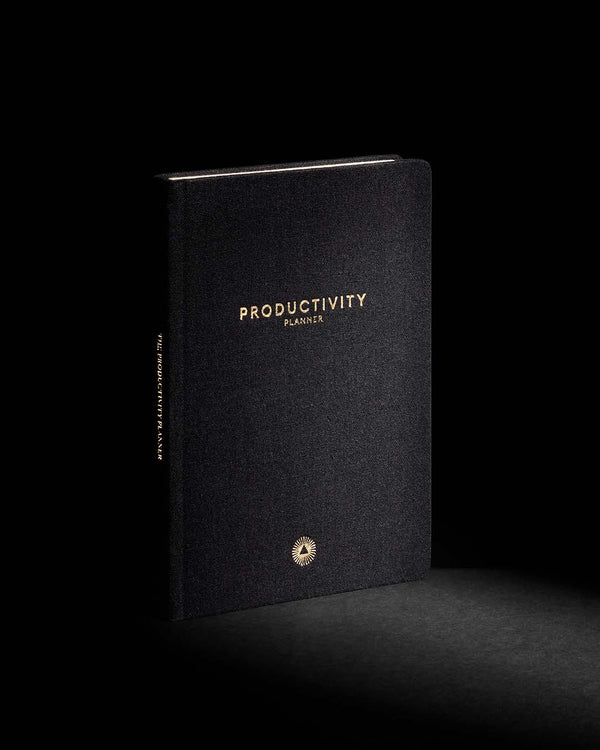6 “Lazy” Productivity Examples with Great Results

Elon Musk works 100 hours/week. Not to be outdone, Marissa Mayer claims to work 130 hours, suggesting that employees should plan out their eating and bathroom breaks to maximize efficiency. What about about the people getting big things done with less effort, aka “lazy productivity”? An intriguing oxymoron.
We believe you can have your cake and eat it too – a rich personal life combined with impressive achievement at work. It just means focusing on less, but with more deliberate attention.
Anders Ericsson, co-author of Peak and the originator of the 10,000 Hour Rule to master a skill talks about naive and purposeful practice. You want to be better at golf? Just saying you are going “to practice a ton” is not going to do it. Focusing on putting, then your drives etc….that is a directed and focused that will yield results.
To be clear, “lazy productivity” does not mean celebrating a poor work ethic. You still need to work, just more effectively. Now lets learn how to extrapolate that.
1-DAY A WEEK BOOK WRITING WITH JON ACUFF
We often underestimate the amount of “damage” we can do when we choose to focus for a long stretch of deep work, 2-3 hours of uninterrupted time on a single task. However, despite our intentions, life can get in the way. Our ideal would be to work 10 hours of focused time each week (see David Heinemeier Hanson’s example below), but we realize we’ve been failing to do this consistently. Now what?
Enter Jon Acuff.
Jon is the New York Times Bestselling author of six books including his most recent Wall Street Journal #1 Bestseller, Finish: Give yourself the gift of done. While writing his first book, he realized he only had one day a week free to write:
BINGING WITH CHERYL STRAYED
Stephen King is noted for spreading the advice to write every day. That may be a horror for some of you! His one routine involves writing 1,000 word a day, 6 days a week. But what about what about if you have kids or have other pressing demands that cannot be ignored?
Enter Cheryl Strayed, author of the best selling memoir Wild.
Like many others, at the start of her writing life she received the advice to write every day. But then she dug deeper into the writer doling out the advice:
“And then you would look deeper and see that this man would be in his office and his wife would be bringing him lunch and then he’d have lunch. I would be – ‘that is just not my life, no one is catering my life.’ I mean I was bringing lunch to other people, I was a waitress.” (2)
Seeing the disconnect in her life, Strayed decided to adopt a writing schedule that fit for her, just as Acuff had done.
“I said to my husband that I am going to check in a hotel down the street for two nights. I’m going to be gone for 48 hours – don’t call me unless somebody stops breathing. I’m going to work and I’m going to get more work done in those 48 hours than I got done for weeks at home … There is something about that uninterrupted time that makes something happen that works far better for me than that every day.”
The key to this binge “productivity” is scheduling and accepting when you can’t be productive:
“This is the block of time that I’m not going to be able to write, even if it is a couple of days – sometimes it’s a couple of months – therefore I release myself from any kind of guilt or shame that I should be writing when I’m not writing. And the counterpoint to that, is to say I am going to write on these days or these months. I try to arrange my life so that happens...
It doesn’t matter what you should do, just make an intention and follow through with it. So, if all you can do is write one day a month, say ‘I’m going to take one day a month that’s all I’m doing’. That’s twelve good days a year, there’s a lot of writing you can get done.”
SPRINTING WITH SETH GODIN & SYLVESTER STALLONE
On the heels of Cheryl’s binge writing, comes sprinting.
Teacher, author, and entrepreneur Seth Godin has been known for living a more “balanced” schedule, keeping a healthy mix of work and family. (3) But every once in awhile, necessity dictated Seth to sprint:
How often do we get sparks of inspiration, but then let it slip into the ether? Inspiration is perishable. You either use it or lose it.
After struggling with acting in New York, Sylvester Stallone moved to California to try a shot at Hollywood. Things did not go much better there. He had to sell his dogs because he could not feed them. But then, one night, he went to see Muhammad Ali fight Chuck Wepner.
“What I saw was pretty extraordinary. I saw a man called 'The Bayonne Bleeder' fight the greatest fighter who ever lived. And for one brief moment, this supposed stumblebum turned out to be magnificent. And he lasted and knocked the champ down. I thought if this isn’t a metaphor for life.” (5)
From here, cue the legendary story of Stallone writing Rocky, a 90 page script, in three days! The part that often gets left out is only a third of it was used in the movie.
Had Stallone waited to perfect the script over months, perhaps Rocky might have never seen the light of day. We’ll never know. But the story and spirit of Rocky was good enough to get made because Stallone seized an intense 3-days of writing. Sometimes, editing and re-editing will be the best option, but often, waiting for perfect just serves as procrastination to not ship anything.
While perhaps you do not produce the outcomes like Seth or Stallone, how good would it feel if you finished something you’ve been putting off this week?
TWICE THE RESULTS, 1/8TH THE TIME WITH TIM FERRISS
Before the 200 million+ downloaded podcast, 4 Hour book series, and legend that is Tim Ferriss, he worked a data storage sales job in which he had to make cold calls. It marked the beginning of his endless effort to challenge the productivity status quo.
“I realized that most cold calls didn't get to the intended person for one reason; gatekeepers. If I simply made all my calls from 8:00-8:30 A.M. and 6:00-6:30 P.M., for a total of one hour, I was able to avoid secretaries and book more than twice as many meetings as the senior sales executives who called from 9-5. In other words, I got twice the results for 1/8th the time.” (6)
While 1-hour sales windows may not apply to your job, surely there is a block of time that produces disproportionate results. Ask any Instagram based entrepreneur. Timing is everything.
If you look at the daily rituals of some of the most notable people in history from Benjamin Franklin to Charles Darwin to Pablo Picasso, most did their work either early in the morning or late at night.
Where are the time-windows in your day that produces disproportionate results?
10 HOURS A WEEK WITH DAVID HEINEMEIER HANSSON
While all the above examples represented condensed periods of time, what about something a bit more sustainable on a ongoing basis?
See DHH.
David Hannemier Hanson is a partner in software management company Basecamp, created the programming language Ruby on Rails framework, a race car driver, and author of multiple books. While many entrepreneurial advice recommend basically selling your first born and cranking 100 hour work weeks, David helped build Basecamp slowly, while attending college:
But how do you know what to do with those 10 hours? David recommends going all in on one thing:







